
Honours Class makes cultural heritage tangible: ‘You are dealing with people’
An Honours Class about the ostensibly unrecognisable worlds of insular Southeast Asia teaches students a fundamental piece of wisdom: "We do not differ much from the people at the other end of the world."
The meanings and functions of the ritual art by the indigenous peoples of Insular Southeast Asia - that is exactly what the Bachelor Honours Class 'Ritual art and Cultural Heritage of Insular Southeast Asia' focused on. One of the lecturers is professor Pieter ter Keurs. As a cultural anthropologist and curator at the Museum van Volkenkunde in Leiden, he has spent a lot of time in that corner of the world.
Teary eyed
"I often got to draw from my own experiences", says Ter Keurs. "I believe that made the class more fun. It was not just a theoretical treatise on the interpretation of objects, but also on the people involved. How do you respond to inqueries from Insular Southeast Asia? 'Hey, you have our artefacts. Why are they with you and not with us?' I have experienced that many times."
-
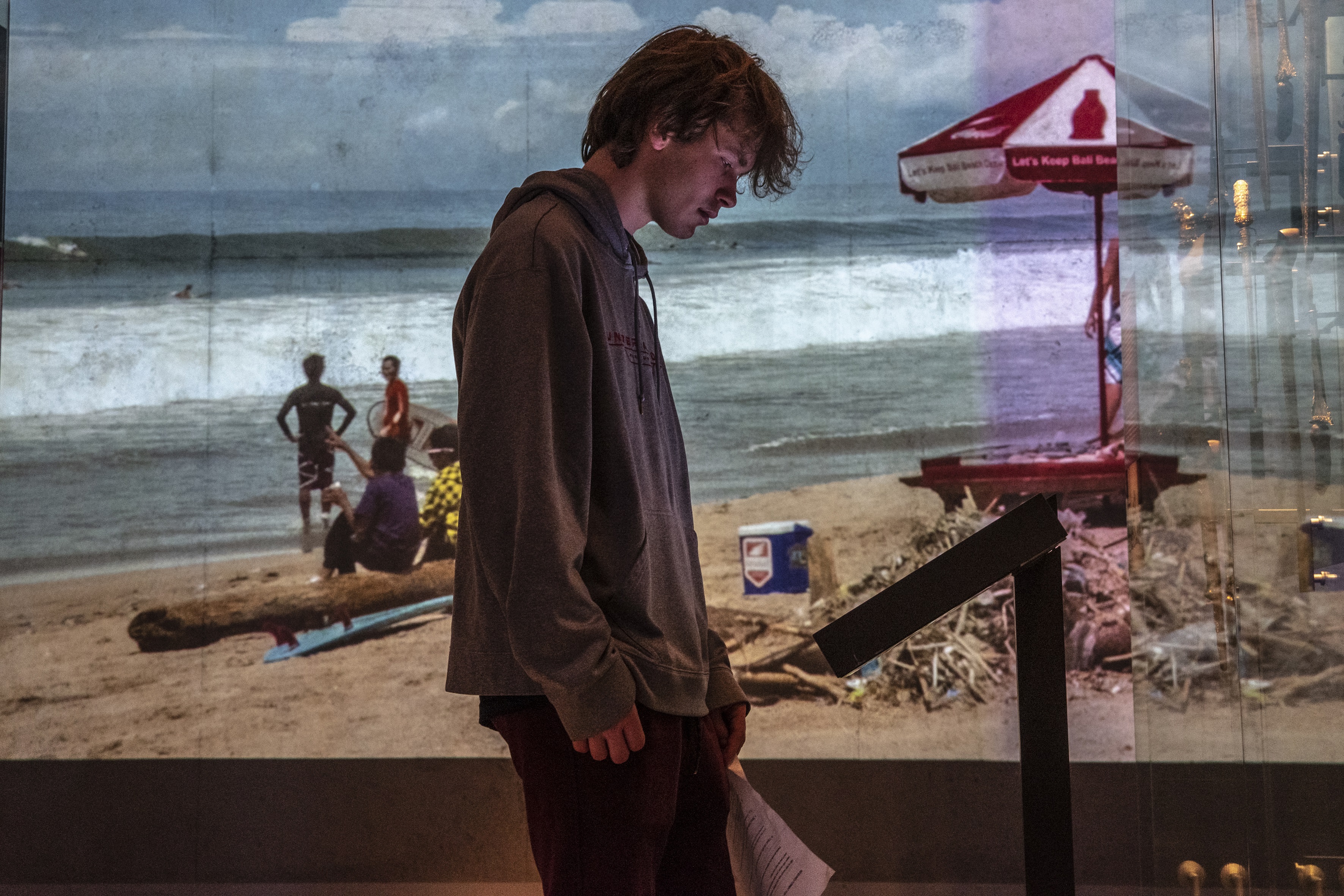
The students visited the Museum Volkenkunde as part of the class. -
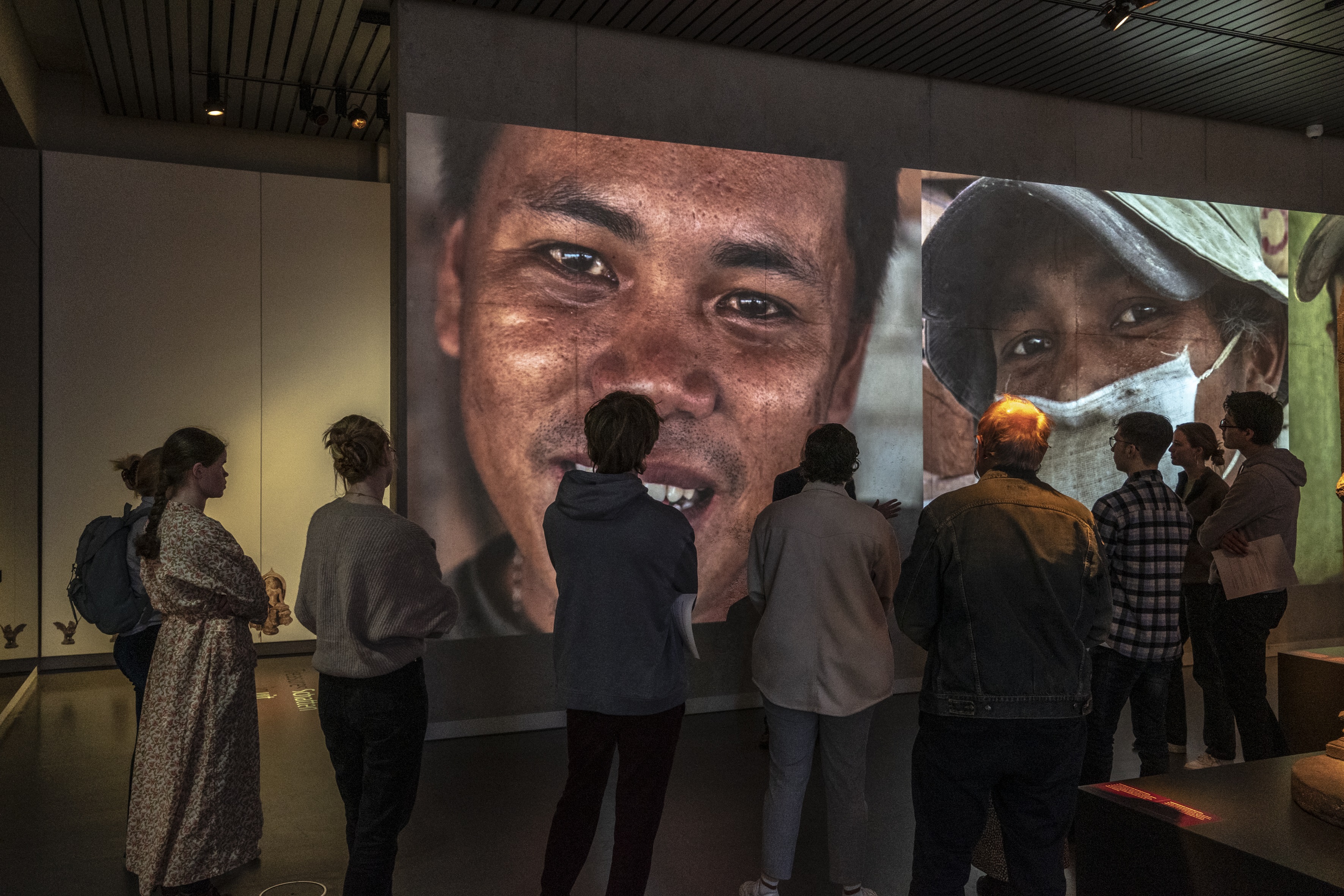
The students visited the Museum Volkenkunde as part of the class. -
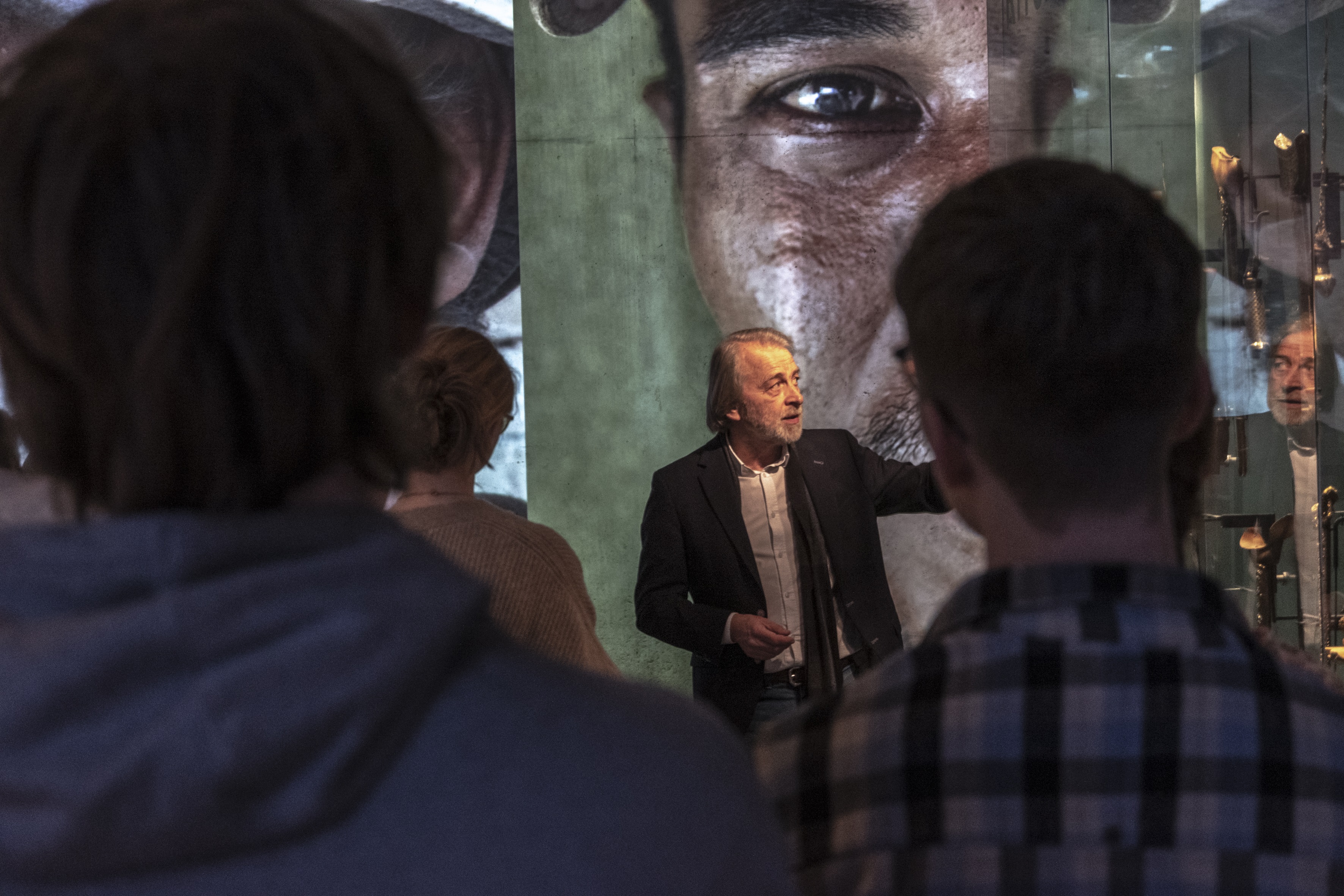
The students visited the Museum Volkenkunde as part of the class. -
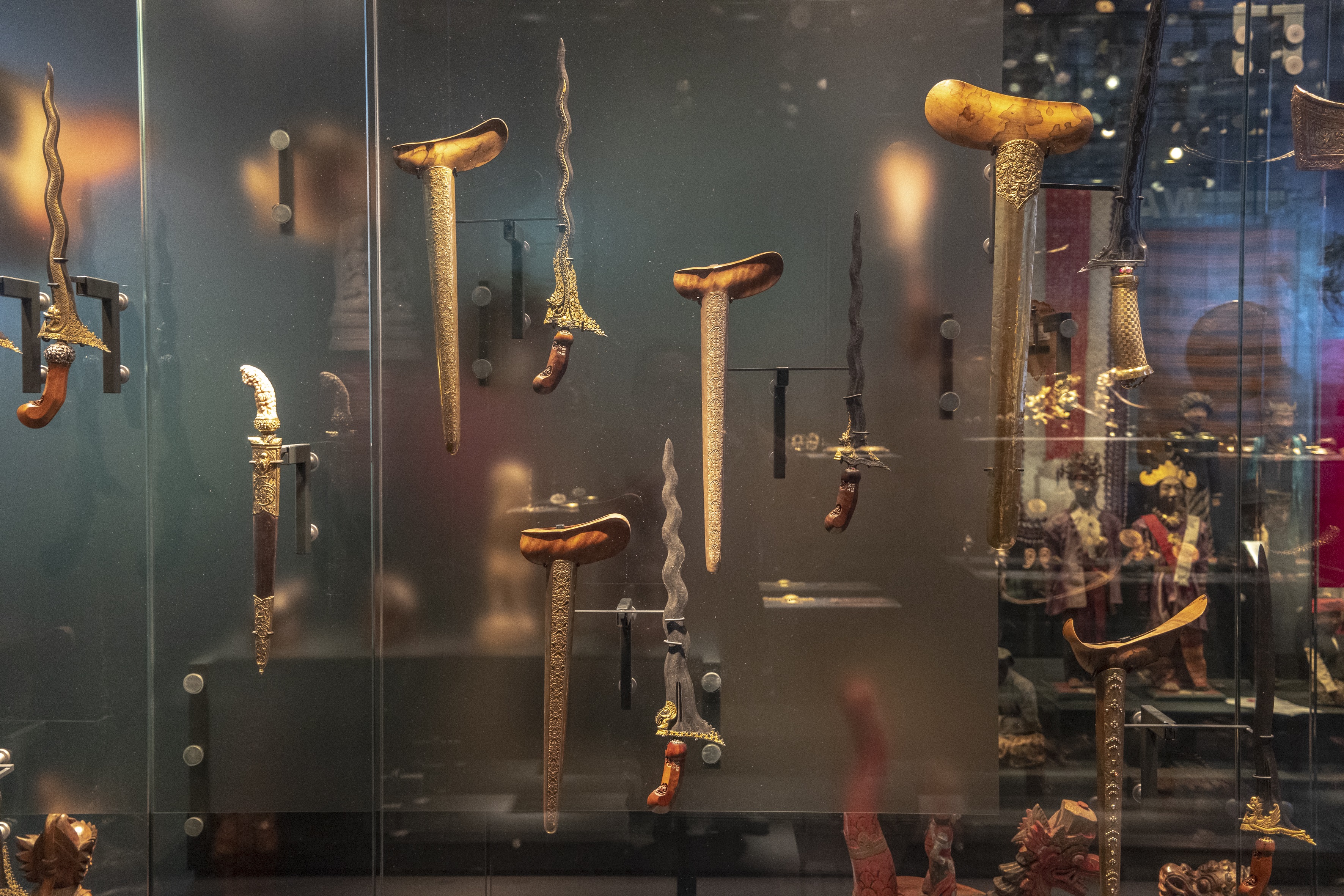
The students visited the Museum Volkenkunde as part of the class. -
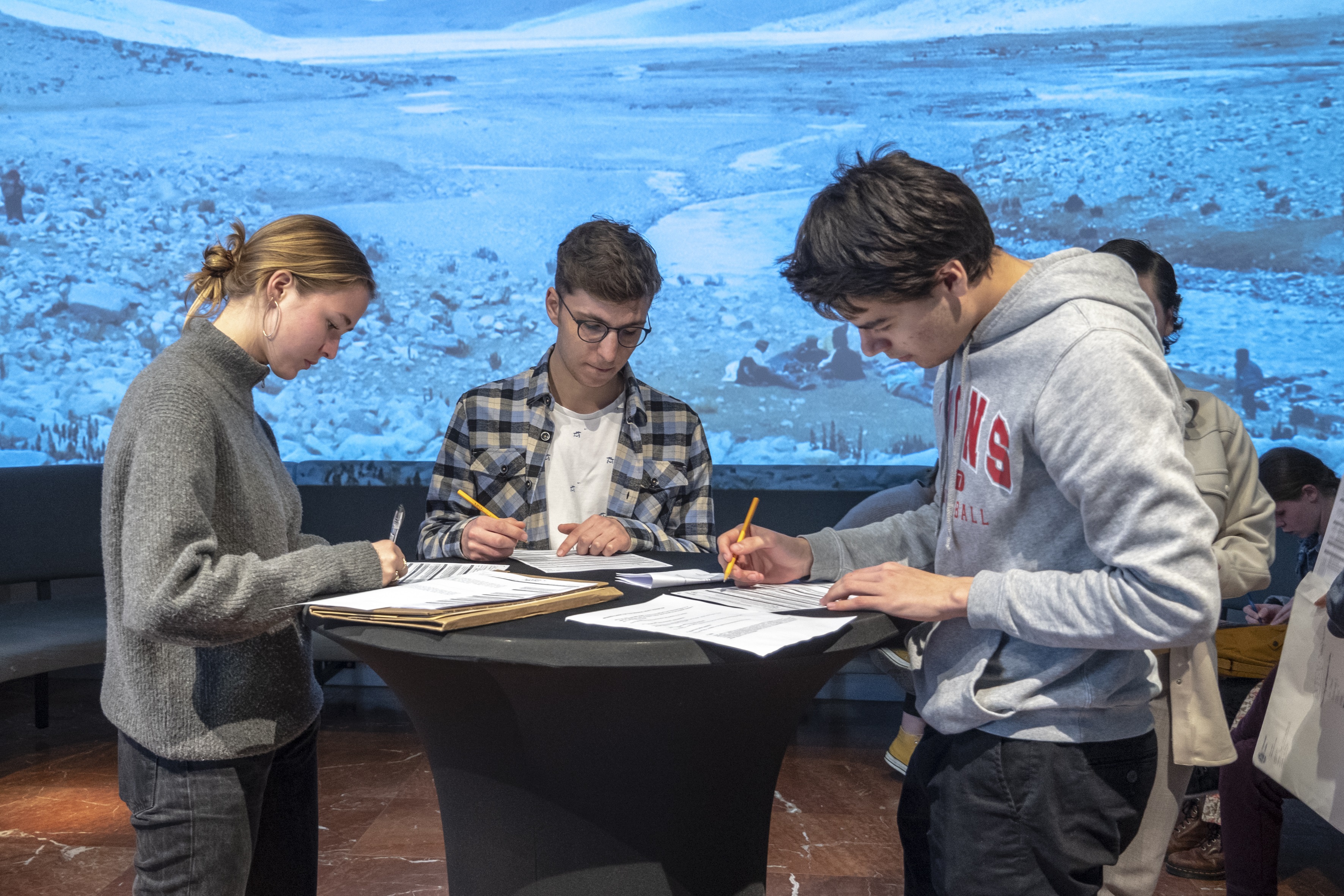
The students visited the Museum Volkenkunde as part of the class.
At one time, Ter Keurs accompanied descendants of Moluccan migrants looking at Moluccan statuary in the Leiden collection. "They stood there teary eyed. Their grandparents told them the statues existed, and were displayed somewhere in a museum. I was able to show them those statues. The emotions it brought about... it makes you realise you are not in a boring, stuffy museum work, but you are really dealing with people - and their relationships to certain objects."
'We have a similar bond with objects'
Looking at a statue all teary eyed, it is something we as westerners might have difficulty relating to. However, Ter Keurs disagrees: "Dutch people, Europeans, experience the same thing. If you are lonely in a faraway land and you encounter a Dutch person..."

Student Andrés Madrid Ucha is from Mexico and he has become more aware of his own culture since moving to The Netherlands. "It might be a bit stereotypical", he admits, "but I miss being able to get spicy food. I have bought jars of salsa that were said to be 'Mexican' and I have had to it all of it to feel anything on my tongue."
Ter Keurs: "I believe that in that regard we do not differ all that much from people at the other end of the world. We think material things survive us. That makes us want to connect with them. Clothing, for example, says something about your personality. We have the same relationship to material things."
The power of objects
"Sometimes", says Andrés, "I feel as if in a museum we look at things and go: okay, that looks nice - or not. We only see the outside. But when someone explains the meaning of an object, you get a feel for how powerful an object can be. That was a very cool aspect of this class."

Ter Keurs: "That is exactly what we wish comes accross, that they are not just self-contained, material objects, but there are people involved. Such an ancestor statue is not just a piece of wood. It influences your life."
"People often say: you visit a museum to learn something or see beautiful things. Perhaps even more importantly, though, people hope to be impressed by something." He gives an example: "When people enter the National Museum of Antiquities and they see the Egyptian temple in the atrium... they remeber that. Even if they know nothing about Ancient Egypt. The power of the objects themselves - I believe that is what it is all about."
Text: Boukje van der Vos
Photos: Buro JP
